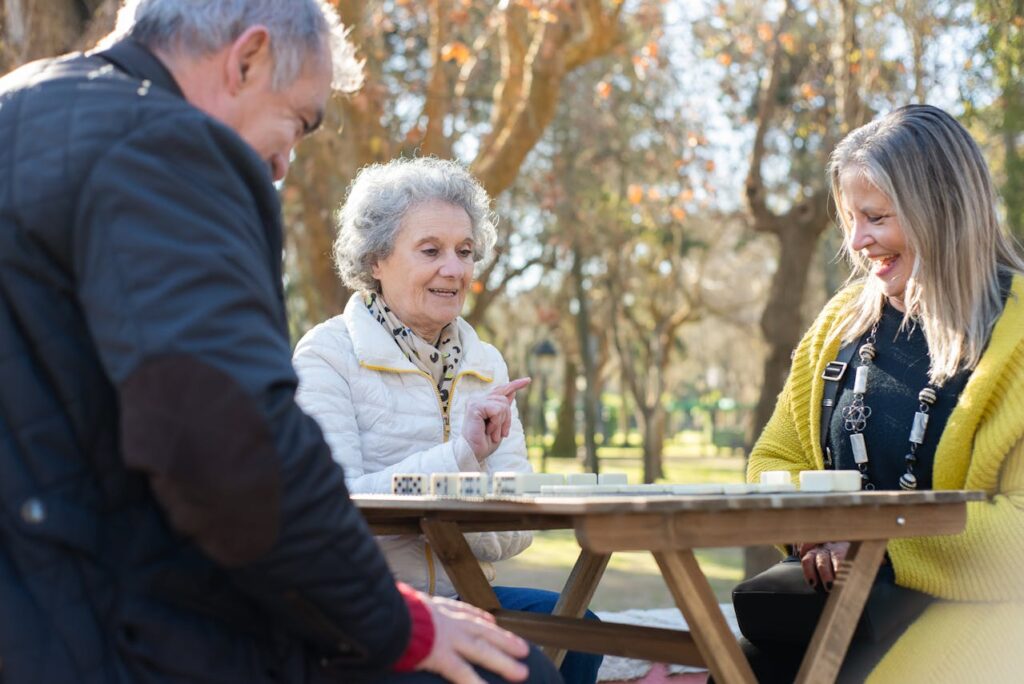
Table of Contents
Introduction
In a world where long life and wellness are always tied to the latest diet trend or fitness fad, it is easy to overlook the timeless wisdom embedded in the daily routines of communities that have long been celebrated for their longevity. These communities are known as “Blue Zones,” where people live significantly longer lives, often reaching 100 years or more with health, vitality, and independence. But what makes these regions special? What can we learn from their lifestyles to promote long life and enhance our own health and wellness?
This blog explores the secrets of longevity from the world’s Blue Zones—regions where people regularly outlive the global average—and looks at how we can adopt some of these life-enriching practices for our own benefit.
What Are Blue Zones?
The term “Blue Zones” was coined by Dan Buettner, a National Geographic Fellow and longevity expert, who identified five key regions around the world where people tend to live longer, healthier lives than the global average. These Blue Zones are:
Okinawa, Japan
Sardinia, Italy
Nicoya Peninsula, Costa Rica
Ikaria, Greece
Loma Linda, California, USA
In each of these areas, a combination of genetic factors, environmental influences, and lifestyle habits contributes to extraordinary health outcomes. The people in these regions experience lower rates of chronic disease, such as heart disease, diabetes, and cancer, and they tend to live into their 90s or 100s without experiencing a decline in physical or mental function.
But what are some of the actual longevity secrets shared by these communities, and how can we make them part of our lives?
1. A Plant-Based, Whole Foods Diet
One of the most visible aspects of life in the Blue Zones is the prevailing diet: almost entirely plant-based and made up of whole, unprocessed foods.

Okinawa, Japan: Okinawans enjoy a diet that is primarily made up of sweet potatoes, soy products like tofu, and a variety of vegetables. They follow a concept called “Hara Hachi Bu,” which encourages eating until you’re 80% full, helping to prevent overeating and maintain a healthy weight.
Ikaria, Greece: Ikarian diet is based on vegetables, legumes, and healthy fats, mostly in the form of olive oil. They consume a wide range of wild greens and herbs, which have high levels of antioxidants and possess anti-inflammatory properties.
Sardinia, Italy: The people of Sardinia eat a lot of beans, whole grains, and fresh vegetables and only a moderate amount of meat and dairy. Its special food, “Pane Carasau,” is flatbread traditionally used by Sardinians to wrap around fresh vegetables or just a bit of cheese.
High consumption of plant-based foods, especially vegetables, legumes, and fruits, provides the body with a lot of vitamins, minerals, antioxidants, and fiber. All these contribute to better immune function, reduced inflammation, and a lower risk of chronic diseases, all contributing to long life.
Besides that, moderation in eating or consumption of food-whether eating until 80% full (as practiced in Okinawa) or a diet rich in variety but low in processed foods-helps maintain a healthy weight and reduces strain on the body, promoting longevity.
2. Regular Physical Activity
Physical activity is a consistent theme across all Blue Zones. These centenarians are not high-intensity workout enthusiasts but instead lead active lifestyles through low-impact, daily movement that is part of their natural lifestyles.
Okinawa, Japan: Okinawans maintain physical activity through walking and gardening. The elderly also participate in “moai” (social gatherings) and martial arts, such as Tai Chi, to maintain physical health while also building social relationships.
In Sardinia, life is a tough challenge, especially for the elderly males, who spend much time working in the fields or with the cattle. The hilly environment and the laboring jobs increase their physical strength and robustness.
Nicoya Peninsula, Costa Rica: Nicoyans habitually do physical work, in whatever form that may be for them: farming, cultivating their garden, or construction work. Moreover, they positively have a carefree attitude regarding life, which motivates them to remain active without an associated stress of a sedentary lifestyle.
These cultures promote natural movement based on their daily activities. Gardening, walking, cycling, and even socializing all involve physical activity, which promotes cardiovascular health, muscle strength, and flexibility. All these activities prevent the physical decline associated with aging, which is one of the factors that contribute to the overall long life of the people in Blue Zones.
3. Strong Social Connections
Another similarity in Blue Zones is social networks. This means that the strength of relationships with family and friends in these regions is not only common but is also valued profoundly.
Social networking and the sense of belonging give people the emotional and psychological boost required to maintain the balance of good mental and physical health.

Ikaria, Greece: Community is essential in Ikaria. People often gather with family and friends to share meals and celebrate life. The sense of belonging decreases stress and lowers the risk of depression, which may be linked to a longer life.
Loma Linda, California: The Loma Linda Seventh-day Adventist group fosters a sense of belonging built upon faith, family, and the community. Their weekly rest day and Sabbath provides individuals the time to recharge their bodies, emotions, and psyches.
Nicoya Peninsula, Costa Rica: Families and community are considered part of one’s life at Nicoya. Elders in these communities engage fully in their family’s daily life; this encourages elders to remain purposeful as well as connected with life around them.
The emotional and psychological benefits of social relationships are profound. People with a strong social tie tend to have lower levels of stress, and they experience a greater sense of happiness and fulfillment.
These factors contribute significantly to longevity, as they help reduce the risk of mental health issues, chronic illness, and even promote healthier habits.
4. Purpose in Life
One of the primary characteristics of many communities within Blue Zones is having a purpose. It is known by other names such as “Ikigai” in Okinawa and “Plan de Vida” in Nicoya where there is a sense that each day has a meaning and purpose to wake up to. Centenarians living in Blue Zones may not only live longer; they also live with direction and purpose.
Okinawa, Japan: People have the “Ikigai” of their daily activities in life that motivates them to work each day. Be it in raising children, tending gardens or serving in their communities, activities done for the greater good fulfill the soul.
The Nicoya Peninsula, Costa Rica: Similarly, Nicoyans have what is called a “Plan de Vida,” or plan for life, which keeps them engaged and motivated. Indeed, many centenarians keep working well into old age, which provides them with an accomplishment and a purpose for life.
Research has shown that having a purpose can decrease the risks of cardiovascular disease, depression, and even premature death. People with purpose are usually stronger, have better immune systems, and can cope more effectively with stress, among other factors that contribute to longevity.
5. Stress Management and Relaxation
Chronic stress is one of the major contributing factors to shortening life expectancy, but in Blue Zones, people have developed various strategies to cope with stress and maintain calmness in their lives.
Ikaria, Greece: In Ikaria, the concept of “idleness” is promoted. People take regular naps, go for lazy walks, and have a laid-back approach to time, which helps them avoid the stress that comes with over-scheduled lives.
Sardinia, Italy: As a slow-paced place, life in the mountainous villages of Sardinia seems to flow within its own natural rhythm. Everything is slow, including and especially taking time to enjoy life’s finer things-foods and companies-and simple pleasures, for example.
Okinawa, Japan: Meditating and practicing Tai Chi, plus spiritual activities meant to be stress-reducers, is practiced by Okinawans. This should help achieve a balance mentally and boost resilience.
Living without constant stress improves sleep quality, reduces the risk of heart disease, and helps maintain cognitive function. Moments of relaxation, mindfulness, and community connection incorporated into people’s lives in Blue Zones effectively combat the negative effects of stress, which leads to better long-term health and longevity.
6. Moderate Alcohol Consumption
While moderation is key in all aspects of life for Blue Zone residents, their consumption of alcohol, particularly wine, is also part of the explanation of their long lives.

Ikaria, Greece: People from Ikaria often drink red wine, which is antioxidant-rich, with meals. Moderation in wine consumption together with a diet rich in vegetables and healthy fats, results in heart healthiness and general well-being.
Sardinia, Italy: The Sardinians take moderate wine consumption. More so, most of the Sardinians love drinking red wine, referred to as Cannonau wine with a reported high polyphenol content for cardiovascular health benefits.
Several studies have illustrated that moderate intake of alcohol or more precisely red wine enhances cardiovascular effects, improves interpersonal relations, and reduces psychological stress. However, an excess leads to the vice versa, numerous health problems arising from this vice.
How to Apply Blue Zone Principles to Your Own Life
If you’re inspired by the Blue Zones and want to incorporate some of their practices into your own life, here are some actionable steps:
Embrace a Plant-Based, Whole Foods Diet:
Aim to fill your plate with vegetables, fruits, legumes, and whole grains. Limit processed foods, especially those high in sugar, salt, and unhealthy fats.
Try to introduce plant-based meals into your daily routine. Even one or two meals a week can have an impact.
Reduce portion sizes and eat mindfully, following practices such as “Hara Hachi Bu” to prevent overeating.
Introduce Natural Movement into Your Day:
Activities which should help keep you physically active yet are not too strenuous at all are those which allow for doing more and less intense activities like walking, gardening, dancing, and even house chores.
Consider taking a walk or stretch regularly if you sit on a desk all day. Just a few little things such as walking to the store, taking the stairs, or spending more time outside make a world of difference.
Develop Robust Social Relationships:
Prioritize relationships with family and friends. Make time to connect with loved ones regularly, whether it’s through meals, outings, or just casual chats.
Create or join a community group—whether it’s for a hobby, volunteering, or a shared interest. Social bonds can greatly enhance your overall well-being.
Surround yourself with positive, like-minded people who encourage you to be your best self.
Find Your Purpose:
Determine what makes you want to be alive, be it work, creativity, family, or a purpose of serving others. Having something to look forward to makes the mind sharper and the spirit more energized.
Find mentally and emotionally stimulating things that make you wake up with something to look forward to doing. This may be caring for a pet, mentoring others, or some kind of hobby.
Reduce Stress:
Incorporate relaxation techniques like meditation, deep breathing, or yoga into your routine to help manage daily stress.
Take time to rest and recharge. Napping, spending time in nature, and practicing mindfulness can help you stay grounded and resilient.
Create a balanced routine that allows you to unwind, let go of stress, and find inner peace.
Practice Moderation:
If you like alcohol, try to drink it in moderation. A glass of red wine with your meals, for instance, can be beneficial without overindulgence.
Be mindful of your lifestyle choices in general. Moderation in eating, exercising, and even work habits leads to a more balanced, sustainable approach to life.
The Takeaway:
The longevity secrets from the Blue Zones are not mysterious or out of reach. They are rooted in simplicity and a deep connection to the environment, community, and purpose. By adopting some of these lifestyle habits, we can all work toward better health, greater happiness, and more fulfilling lives.
While there is no magic formula for long life, lessons from such extraordinary communities can give us something to build on. Therefore, when we look into the future, let’s remember that wisdom in the Blue Zones: not just to live longer, but to live better.
It’s about adopting habits that nourish our bodies, minds, and spirits and ensure we live each day with intention, joy, and fulfillment. Doing so can add more years to our lives—and more life to our years.
Final Thought:
Longevity is not an accident of genetics but the result of consistent lifestyle choices. Whether it is the Okinawan centenarians leading healthy, peaceful lives or that of the Sardinian, being active and purposeful, a way to get there is the taking of small, easy steps in line with known good habits.
By being guided by these practices, we are not only going to enhance our chances at long life but also of a quality journey, an effective living of our years. So why wait? Start now to apply the wisdom of Blue Zones to your life and witness how it transforms your health, happiness, and longevity.

